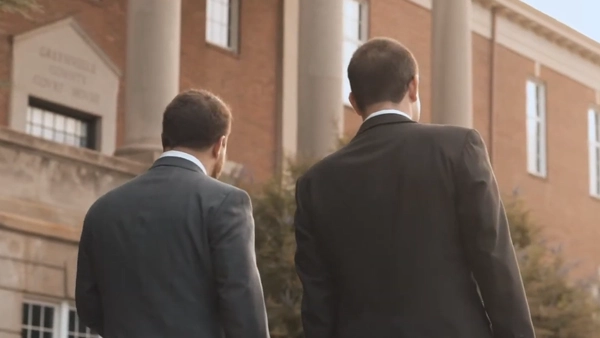 Probable Cause Defined
Probable Cause Defined
Probable cause is a term that is frequently relied upon in our system of criminal justice, and it has a specific meaning at law. Probable cause is a substantial and objective belief that a crime was committed and that the person to be arrested committed the alleged offense. Probable cause does not require absolute certainty, but there must be more than a mere suspicion of responsibility.
Probable cause serves as a threshold for law enforcement action in many circumstances.
Arrest Warrants
When a law enforcement officer wants to arrest a particular party for the commission of an alleged crime, that officer needs to provide evidence sufficient to establish probable cause to a neutral and detached magistrate. The proffered evidence must be sworn to in an affidavit signed by the submitting officer and completed on forms prescribed by the South Carolina Attorney General. The affidavit must be supported by probable cause. Mere conclusory statements are insufficient. If the magistrate concludes that there is probable cause to make an arrest, then he or she has a duty to issue an arrest warrant. However, if the magistrate finds that there is not enough evidence to establish probable cause, then it is that magistrate’s duty to deny the officer’s request for an arrest warrant.
Warrantless Arrests
In some circumstances, law enforcement officers can arrest individuals for violations of the law without applying for an arrest warrant.
When an officer has probable cause to believe that a person has committed a felony, then the officer may arrest that person without an arrest warrant. However, to ensure that the rights of the accused are sufficiently protected, a warrant should be obtained prior to arrest unless circumstances indicate that the accused is likely to escape or commit further criminal violations before the officer can successfully apply for and obtain an arrest warrant.
When probable cause indicates that a particular party has committed a crime classified as a misdemeanor and the commission of that crime was witnessed by a law enforcement officer, the officer may arrest that person without first obtaining an arrest warrant.
Finally, when a person commits a traffic offense, an offense specifically enumerated in Section 56-7-10, or an offense prosecutable in magistrate or municipal court and the commission of the crime was witnessed by the arresting officer, an officer can issue a uniform traffic ticket instead of an arrest warrant to initiate judicial proceedings.
Search Warrants
Like arrest warrants, search warrants must be substantiated by probable cause. The Fourth Amendment of the Constitution ensures that each person remains secure from unreasonable searches and seizures. So, when law enforcement believes that evidence of a crime can be obtained at a particular residence, then that belief must be supported by probable cause. To obtain an arrest warrant, then, a law enforcement officer must submit an affidavit specifying the thing sought and why it is believed that the search will produce evidence of a crime or contraband. Just like an arrest warrant, a neutral and detached magistrate needs to determine whether probable cause supports the officer’s request, and if there is not probable cause, then the magistrate is required to withhold the search warrant.
Warrantless Searches
There are several exceptions to the Fourth Amendment warrant requirement. One, the automobile exception, allows law enforcement to search an automobile if there exists probable cause that supports the search. The investigating officer need not apply for a search warrant, so long as the thing sought to be searched is a motor vehicle, the motor vehicle is readily movable, and there is probable cause indicating evidence or contraband will be found in the vehicle.
The “plain view” and “exigent circumstances” doctrines are two other circumstances when law enforcement does not have to stop to obtain a search warrant to search for or seize an item. If law enforcement inadvertently encounters evidence of a crime or illicit materials, then they can secure those items and place them in to evidence. However, there must be probable cause to serve as the reasonable basis for the belief that the thing to be seized is illegal or of evidentiary value. Similarly, law enforcement need not stop to obtain a search warrant when there is probable cause to believe that evidence will be destroyed or otherwise disposed of before a search warrant can be obtained.
Why Probable Cause is Important
In the context of an arrest for an alleged crime, the absence of probable constitutes a bar to prosecution. In fact, South Carolina solicitors have an ethical obligation to refrain from prosecuting a case for which probable cause does not exist. If there is no probable cause, then the prosecuting attorney is duty-bound to dismiss the case.
If evidence against a person is obtained by way of a search warrant that was not supported by probable cause, then that evidence is inadmissible at trial. When probable cause does not justify an automobile search, plain view search, or warrantless search under exigent circumstances, the evidence obtained is similarly inadmissible and the presiding judge must preclude its admission.
Ultimately, while a basic understanding of probable cause is important for any person confronted with allegations of criminal wrongdoing, more important is the assistance of learned counsel who can identify legal issues, contend with factual allegations, and is capable of ensuring that each and every one of an accused’s rights are protected. When charged with a violation of South Carolina law, seek out the advice and counsel of an Greenville Criminal Defense Attorney who can help you navigate the process and guarantee that law enforcement’s actions pass Constitutional muster.








